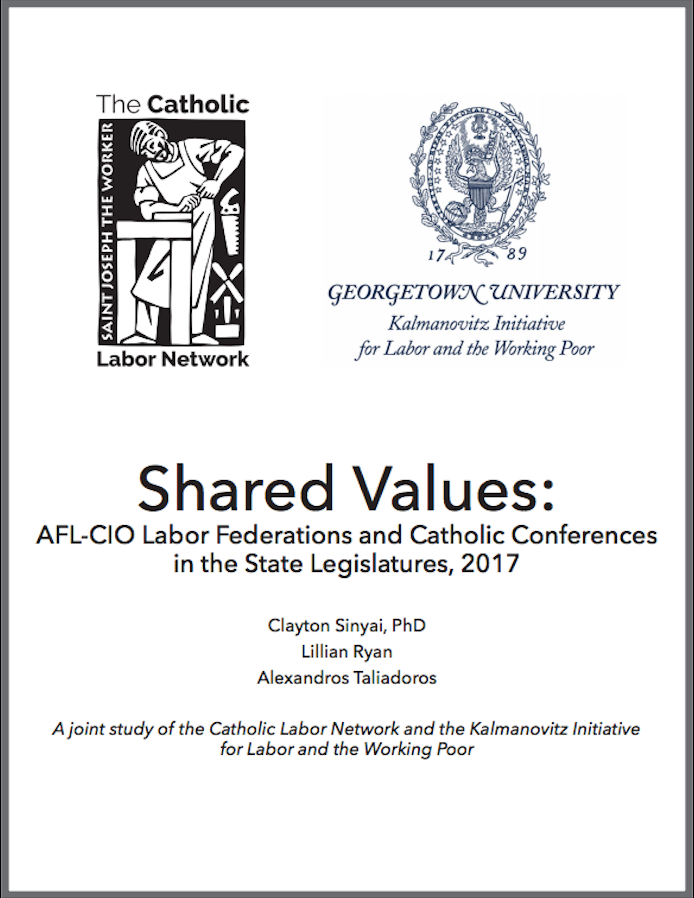Shared Values: AFL-CIO and Catholic Conference Activity
Posted in Publications

The labor movement in the United States shares many values with the Catholic Church, with each supporting living wages for workers, the right to join and form unions, and the defense of our immigrant brothers and sisters. We partnered with the Catholic Labor Network to research whether the two organizations worked together to advance their shared ideals at the state level. We surveyed state AFL-CIO labor federations and state Catholic Conferences on their advocacy work in state legislatures, asking whether they worked on several worker rights and immigration issue areas. We had a high response rate, with 29% of the state AFL-CIO presidents and 33% of the Catholic Conferences returning completed surveys. Follow-up interviews were conducted over the phone with several of the respondents to establish a deeper understanding of their shared advocacy. .Both groups reported strong engagement of immigrant rights issues with 62% of the labor federation presidents and 57% of the Catholic Conference executive directors advocating for immigrant workers in the 2017 legislative session. They also seemed equally invested in paid family and sick leave, which 46% of AFL-CIO presidents and 43% of Catholic Conference directors reported to work on in 2017. Although the Catholic Conference directors have a broad agenda that extends beyond economic justice, they still made time to address worker rights issues such as the minimum wage (38%), right-to-work laws (14%), and worker health and safety (14%). Both AFL-CIO representatives and Catholic Conference leaders expressed a desire to work together more frequently on worker justice and immigration issues. .The report highlights the partnerships already taking place between the Church and the labor movement and lays out the potential for more collaboration at the state level based on their shared respect for the dignity of workers.
View or download Shared Values: A Report on AFL-CIO and Catholic Conference Activity in the State Legislatures.
